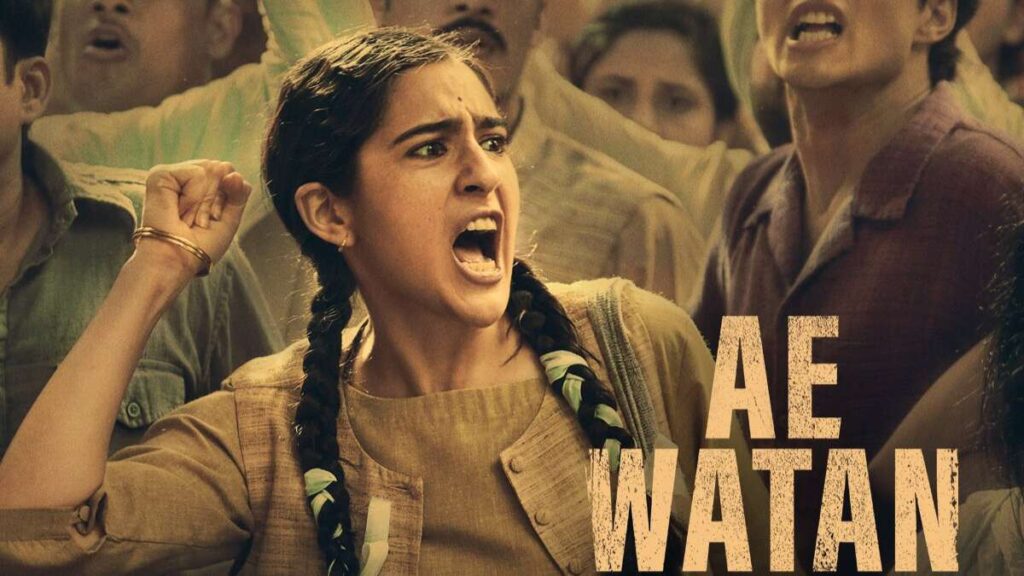“Ae Watan Mere Watan review: Sara Ali Khan’s dialogue delivery, historical drama, India’s freedom struggle, and narrative challenges.”

Sara Ali Khan’s Dialogue Delivery
Ae Watan Mere Watan film review: Remember Sara Ali Khan’s “Tum mujhe tang karne lage ho” dialogue in Imtiaz Ali’s Love Aaj Kal (2020), which caused a stir? While watching her in Ae Watan Mere Watan, I was reminded of how she delivered her lines in the historical drama.
The Making of Original Stories
Sincerely, the movie tries hard to be a unique, complex, and well-told story about an ignored hero in India’s independence movement, but Sara’s awful speech delivery—which includes several awkward facial expressions—proves to be the film’s downfall. Since Sara does not speak Hindi as her first language, we chastised the actress Rashmika Mandanna for her poor dialogue delivery in Animal, so it was painful to see her in the same situation. That being said, she is fluent in Urdu and writes some pretty amazing (ahem, ahem) poetry in pure Hindi. Maybe she could have saved herself and the audience with a few lessons in dialect.
A Strong Biographical The Story Happens
The biographical drama Mere Watan by A.E. Sara Ali Khan narrates the tale of Usha Mehta, a brave young lady who was instrumental in the 1942 Indian independence movement. During the Quit India movement, she started an underground radio station to promote harmony and resistance to British rule. The British government pursued Mehta assiduously because of her bold move. This led to a thrilling chase in which Mehta battled to raise the voice of freedom.
Sharing Story and Reviewing Performance
AE Watan On paper, Mere Watan seems to be a thrilling war drama, but the action scenes are hardly exciting. There is not a true sense of urgency in the dialogue, and the story is filled with misery. The actors are trying their hardest to give engaging performances in their small roles throughout this.
Plot Development and Pacing
Ae Watan Mere Watan suffers in the first half due to its slow pace and inability to convey a sense of conviction through the narrative. The plot moves at its own pace, with a slow character arc for each of the three actors most invested in the story. However, in the second half, Ae Watan Mere Watan picks up the pace like a cat, and a game opportunity arises between the British Intelligence Officers and Congress Radio, each attempting to outwit the other.
mihaela toural dapoza
alania smarda
sharyia behaghel